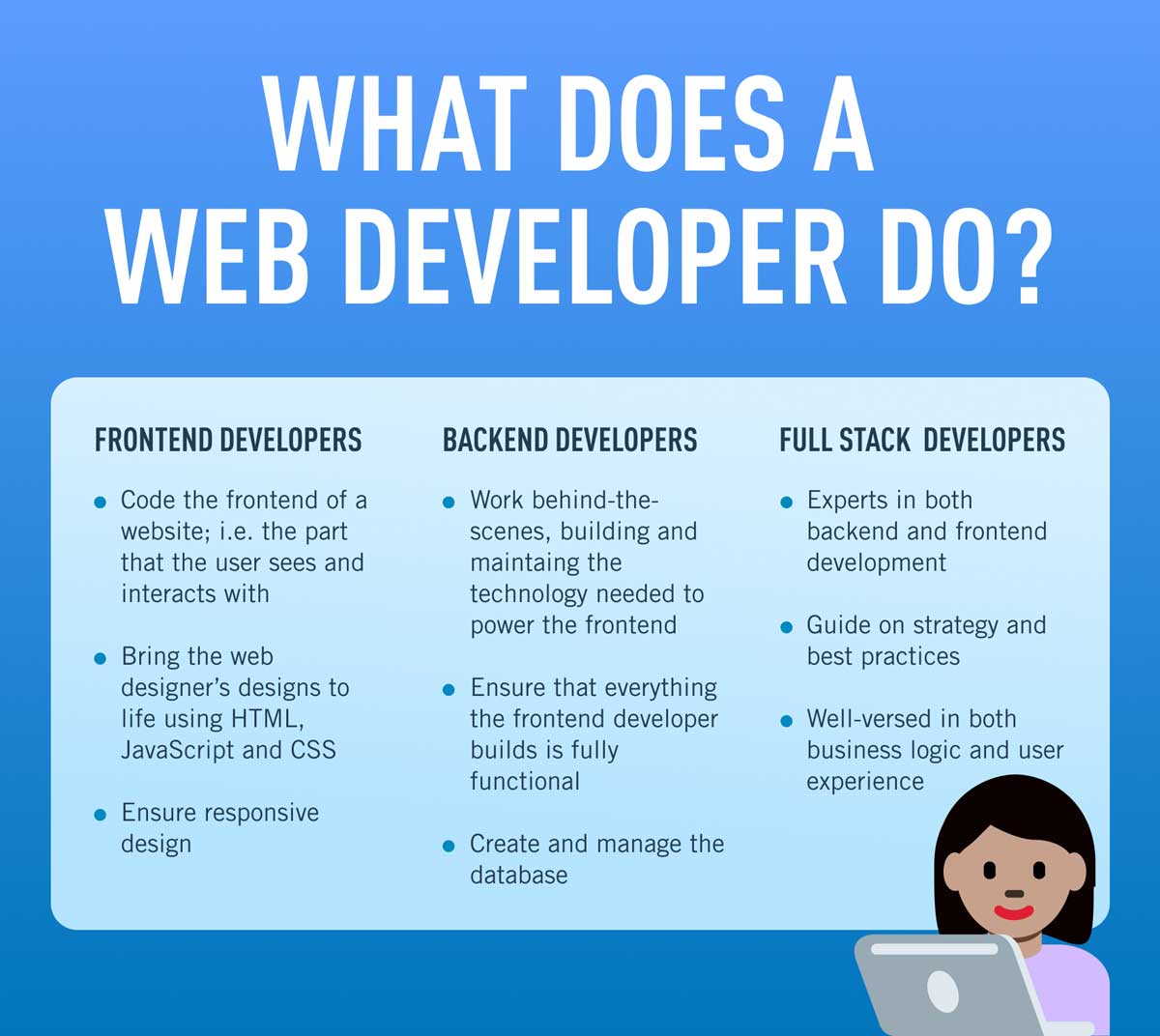Pulse of Information
Stay updated with the latest news and insights.
Web Development: Building Dreams One Line at a Time
Explore the art of web development and transform your ideas into reality! Join us as we build dreams, one line of code at a time!
Understanding the Basics of Web Development: A Beginner's Guide
Understanding the basics of web development is crucial for anyone looking to create a strong online presence. At its core, web development involves the process of building, creating, and maintaining websites and web applications. This field can be broadly divided into three main areas: front-end development, back-end development, and full-stack development. Each of these areas plays a vital role in delivering a seamless user experience. Front-end developers focus on the layout and design of the website, using languages like HTML, CSS, and JavaScript to create engaging interfaces. Back-end developers, on the other hand, work on the server side, managing databases and ensuring that the front-end request is fulfilled effectively.
As a beginner, it’s essential to familiarize yourself with the tools and technologies commonly used in web development. Here’s a simple checklist to get you started:
- Learn the basics of HTML and CSS for structuring and styling your web pages.
- Get comfortable with JavaScript to add interactivity and dynamic features.
- Explore the fundamentals of responsive design to ensure your website looks great on all devices.
- Understand the basics of server-side languages like PHP or Node.js for back-end development.

10 Essential Tools Every Web Developer Should Know
In today's fast-paced digital world, web development has become increasingly specialized and intricate. To stay competitive, web developers must equip themselves with the right tools. Here are 10 essential tools every web developer should know:
- Visual Studio Code: A powerful and customizable code editor that supports numerous programming languages and extensions.
- Git: A version control system that allows developers to track changes and collaborate effectively.
- Chrome Developer Tools: Built directly into the Chrome browser, this tool helps developers inspect and debug their web applications with ease.
- Figma: A design tool that assists developers in creating prototypes and collaborating with designers.
- Postman: Ideal for testing APIs, Postman streamlines the process of sending requests and viewing responses.
- Webpack: A module bundler that helps streamline the development workflow by bundling JavaScript files and assets.
- Node.js: An environment that enables developers to run JavaScript on the server-side, making it a vital tool for full-stack developers.
- Bootstrap: A popular CSS framework that simplifies the design of responsive websites.
- jQuery: A fast and concise JavaScript library that simplifies HTML document traversing and event handling.
- Docker: A containerization tool that helps in deploying applications securely and consistently across various environments.
Understanding these tools can significantly enhance a developer's efficiency and capability. As technology evolves, mastering these 10 essential tools will not only streamline your workflow but also ensure that you deliver high-quality web applications. Whether you're just starting or looking to refine your skills, integrating these tools into your development process is a step toward success.
How to Turn Your Ideas into Functional Websites: A Step-by-Step Approach
Turning your ideas into functional websites can seem daunting, but by following a step-by-step approach, you can bring your vision to life. Start by brainstorming your concept and outlining the features you want. Make sure to sketch a rough layout of your site, focusing on key elements like navigation, content sections, and calls to action. Once you have a clear idea, research your target audience to understand their needs and preferences, which will guide your design and content decisions.
After you’ve laid the groundwork, it’s time to move into the development phase. Choose the right content management system (CMS) or framework that aligns with your goals, whether it’s WordPress, Wix, or a custom-built solution. Begin building your website by creating and organizing the necessary pages, and don’t forget to optimize for SEO to improve visibility in search engines. Implement responsive design to ensure your site looks great on all devices. Finally, launch your website and regularly update it with fresh content to keep your audience engaged.